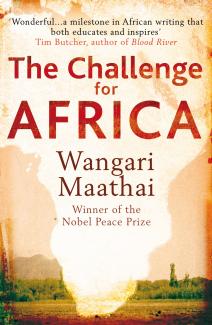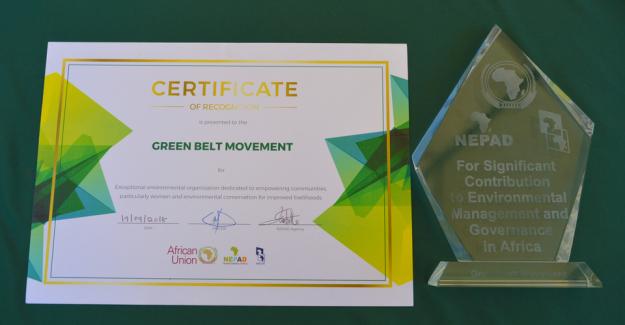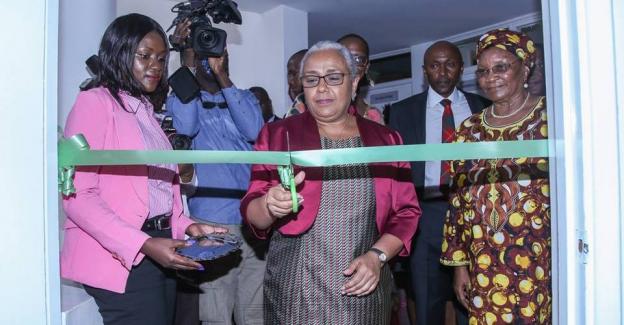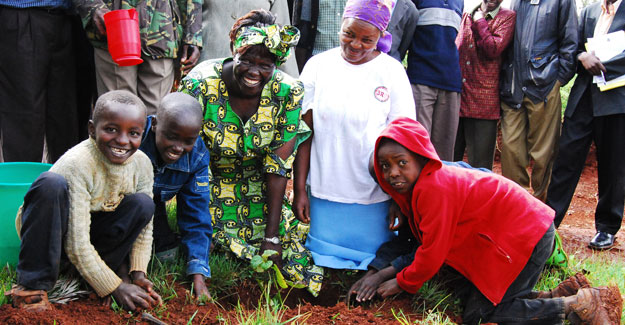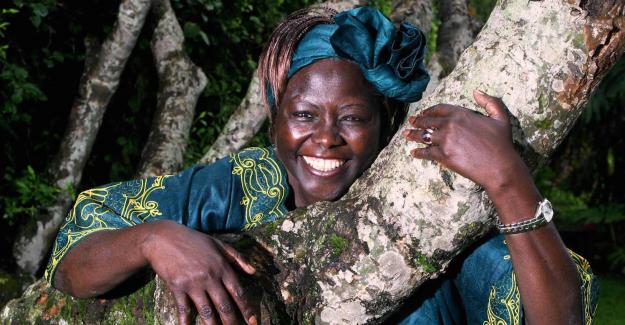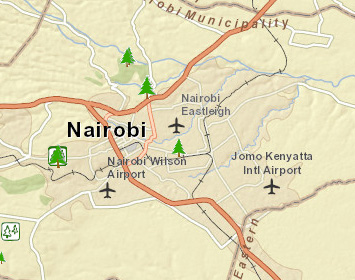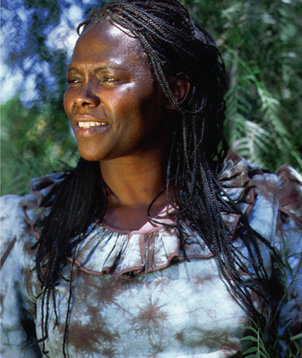What's New
-
Each year, the global community comes together to discuss the ongoing climate crisis, aiming to devise strategies to address this pressing issue. This year's conference, hosted by the United Arab Emirates, which currently holds the COP28 presidency, provides an opportunity for nations to commit to concrete actions in response to the escalating climate crisis.
Recent News
-
September 27th, 2022
-
April 22nd, 2021
-
February 17th, 2021
-
December 1st, 2020
Our Impact
This interactive map shows the location of trees planted by the Green Belt Movement across Kenya.
Using Geographical Information Systems (GIS) we record the location of the tree nurseries, and monitor the progress of the trees planted to ensure high survival rates. Mapping tree-planting sites ensures that our efforts are helping to restore critical watersheds.
Click on the map to zoom in and see the planting locations and information about the number of trees planted.
Wangari Maathai's Legacy
"Each of us can make a difference, and together accomplish what might seem impossible."
Wangari Maathai (1940–2011) was the founder of the Green Belt Movement and the Wangari Maathai Institute. Her life was a series of firsts: the first woman to gain a Ph.D. in East and Central Africa; the first female chair of a department at the University of Nairobi; and the first African woman and the first environmentalist to receive the Nobel Peace Prize (2004). Honoured throughout the world for her work for the environment, democracy, and peace, Professor Maathai was the author of four books including her autobiography: Unbowed and the subject of a documentary film, Taking Root.
Who We Are
Founded in 1977 by Professor Wangari Maathai, the Green Belt Movement (GBM) has planted over 51 million trees in Kenya. GBM works at the grassroots, national, and international levels to promote environmental conservation; to build climate resilience and empower communities, especially women and girls; to foster democratic space and sustainable livelihoods.
Get Involved
Be a Hummingbird! Plant a tree in your neighborhood, download teaching materials, or help fund our projects in Kenya. However you choose to help, we hope you’ll keep in touch and, as Professor Maathai used to say: do the best you can!
